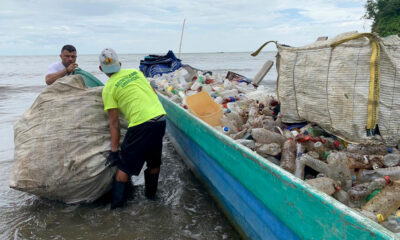
Cannabis
Australia Funds Largest MMJ Study in History
Australia is organizing a government-funded clinical trial to explore the effects of medical marijuana on nausea related to chemotherapy. The study is unprecedented in both its size and scope.
Whenever medical cannabis is discussed, some variation of that statement eventually appears. It’s been repeated so often as to become a mantra — one that conceals the circular logic feeding that lack of research.
“Marijuana may have medical potential, but there’s just not enough research.”
There is, of course, a paucity of scientific data about marijuana’s true value as a treatment, in no small part because of the plant’s outlaw status. But there are barriers to studying cannabis because it’s illegal, and it’s illegal because of those barriers.
Someone has to break this vicious cycle, and out of Australia is coming an unlikely volunteer: the government.
The state of New South Wales — home to Sydney, its world-famous opera house and 7.2 million people — is funding what will be the world’s largest-to-date clinical trial involving cannabis as a treatment for nausea in chemotherapy patients.
Nausea and vomiting are common side effects of chemotherapy regimens. This common cancer treatment often plays a role in a patient’s decline if the nausea becomes too extreme for the patient to eat. The famous appetite-stimulating effects of cannabis (colloquially known as “the munchies”) have long been anecdotally tied to offsetting this nausea, but clinical confirmation is still needed.
A total of eighty cancer patients will be selected for the first round of trials. If initial results are positive, a second round will begin. Health officials from the NSW Government, which is putting $21 million (AUS) behind cannabis-related research efforts, said more than 330 people may eventually be enrolled in the study.
Pru Goward, the local minister for medical research in NSW, told the Sydney Morning Herald that this is one of the few instances where a government lamenting lack of research has actually done anything in order to further that research.
“It’s amazing to think that people have been talking about this for 30 years and yet there has been no real investment in putting it up,” Goward said. “It’s come down to NSW to be a world leader.”
The drug to be used in the study comes from North America. According to the Herald’s reporting, patients will be given capsules with “consistent” levels of CBD and THC made by Canada-based Tilray— one of the firms in which Seattle-based equity firm Privateer Holdings is investing.
One of the cancer patients who hopes to be selected to participate in the study is Lauren Hew, a 32-year-old teacher with two children. Hew has Ewing sarcoma, a rare form of bone cancer which she is likely to fight “until it wins.”
She told the Herald that her chemotherapy regimen leaves her vomiting blood so violently it burns her esophagus, and that she experiences dehydration so intense she faints and hits her head.
She hopes that she’s selected and that the treatment works, even if it’s just long enough for her kids to form happy memories of her as “a happy mum who did things with them and took them to the park and to the zoo while I’m here.”
Meanwhile, in America, people facing chronic illness are still waiting for similar studies.
TELL US, what conditions should the U.S. government study MMJ’s effect on?


























